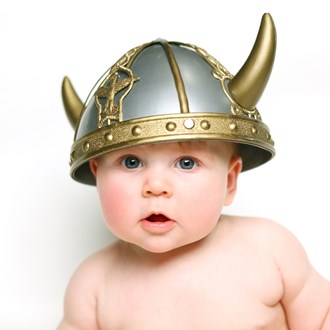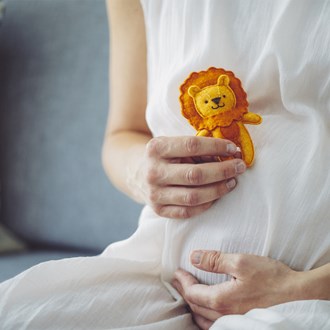Back pain in early pregnancy: when does back pain start?

How to ease the ache
By Practical Parenting
April 04 2019
What causes back pain in early pregnancy?
If you’re experiencing back pain in the first trimester of pregnancy, it’s most likely due to hormones or stress.
In early pregnancy, mild cramping, bloating and back pain are all normal as the uterus begins to grow and your body starts to change. From as early as the first week, hormones are triggering your body to begin nourishing your baby, so some pregnancy pains are to be expected.
Though you can experience back pain at any time throughout your pregnancy, it’s most common during the last few months when the baby is bigger and your centre of gravity shifts.
The most common cause of lower back pain in early pregnancy is the release of a hormone called relaxin. This causes your pelvic ligaments and joints to soften and stretch in preparation for labour. It can also cause the ligaments that support the spine to loosen, which can lead to instability and pain. Pain is usually felt where the pelvis meets the spine. Stress can also increase muscle pain and tightness.

Getty Images
Women who have had back pain or are overweight before falling pregnant are at greater risk of developing back pain during pregnancy. Even though it’s uncomfortable, the good news is mild back pain in the early stages is normal – for some it can even be an early pregnancy sign – and there are several things you can do to alleviate it.
Simple steps such as trying to maintain good posture, avoiding lifting heavy objects, bending at the knees rather than the waist, wearing supportive shoes, gentle exercise and having gentle massages – but check with your doctor first – can all help. You can also speak to your doctor about applying hot or cold compresses and taking medications to treat inflammation; don’t take or try anything without checking with your GP first.

GETTY IMAGES
When should I see my GP for back pain?
You should see your doctor or midwife immediately if you have back cramps or severe back pain during the first trimester and if you are also experiencing any of the following symptoms: severe rhythmic stomach cramps; a fever; period-like bleeding; pain or difficulty when urinating; loss of feeling or tingling in one or both of your legs or backside; pain in one or both sides, under your ribs.
These could be signs of serious problems such as preterm labour or a urinary tract infection. If you feel any of these symptoms, seek medical help straight away.

GETTY IMAGES
As your baby grows
As both your baby and tummy get bigger, this can place extra strain on your back muscles. Your stretched abdominal muscles can cause both back and lower abdominal pain.
In the later stages of pregnancy, your centre of gravity moves forward, causing you to lean backwards and your back muscles to shorten and tighten. In the last trimester, your baby’s position can compress nerves and cause back pain.
Try to get plenty of rest, sleep on your side and tuck pillows underneath your belly and between your knees for support.
And remember: it’s not forever and soon you’ll have a beautiful baby.













